Beckman Scholars
Beckman Scholars
Program Overview
What is the Beckman Scholars Program?
We are delighted to announce that the Beckman Scholars Program has re-opened at Barnard with support from the Arnold O. and Mabel Beckman Foundation. Between 2015 and 2023, eleven Barnard students in select science majors won Beckman Scholars Awards. Two new Beckman Scholars will be selected to begin in summer 2024.
We encourage interested students, especially sophomores, to explore the Beckman Scholars Program. Scholars and mentors participate in a 15-month research experience that extends over two summers and the intervening academic year. Scholars are provided continuous and generous stipend support during summers, and support for supplies, equipment, and publication costs, and travel to conferences. Faculty mentors furnish hands-on guidance throughout.
The Beckman Scholars Program is open to students who are mentored by select faculty in Biology, Chemistry, or Neuroscience & Behavior (see program mentors listed below). Students must commit to an appropriate academic major (see below). We anticipate supporting two outstanding students each year.
Columbia students should apply through a separate program: The Beckman and Columbia College Science Scholars Program
Eligible Students
Applicants must be full-time Barnard undergraduate students with a declared major in biology, chemistry, or neuroscience & behavior. Applicants must be U.S. citizens or permanent residents. Top candidates will demonstrate evidence of leadership, maturity, perseverance, and dedication to scientific research. They will also show research interests or experience aligned with those of a participating mentor, compelling goals for independent research and post-graduate pursuits, superior communication skills, and a commitment to meeting the participation requirements for two summers and the intermediate academic year. Students planning to graduate in 2024 are NOT eligible for awards during the cycle beginning in 2024.
December-January: Prospective applicants should discuss the feasibility of substantive projects hosted within the lab of a Barnard Beckman mentor. During the January program planning period, sophomores and first-years are encouraged to discuss plans with their academic advisor(s) and declare their major prior to application. Students who are ready can declare a major earlier than the spring of sophomore year, even during their first year.
Thursday, February 1st, 2024: Deadline to submit the preliminary application form
Thursday, February 15th, 2024: Deadline for submitting application materials
March 2024: Beckman candidate interviews and notification to Scholars
The Faculty Director of the Beckman Scholars Program is Jennifer Mansfield in the Department of Biology. She is available to answer questions from candidates and mentors about the application process.
jmansfie@hwfj-art.com
212.854.4381
1205 Altschul
office hours by appointment
Guidelines and Checklist
|
Item |
Guidelines |
|---|---|
|
Résumé or CV |
One page |
|
Student Statement (2—3 pages) |
1. proposed research projects and goals, making sure to specify how these are compatible with the research of the faculty mentor and the host lab; 2. educational and career goals after graduating from Barnard College; 3. any prior lab research experience, including the lab’s location, duration of time in the lab, name of mentor, and their unique contributions; 4. any experience authoring or co-authoring a scientific publication or presenting research at a scientific seminar or conference; and 5. plans for managing the rigorous commitments of the Beckman Scholars program. |
|
Print out of transcript |
Unofficial copy from the registrar is permissible; most recent semester’s course grades included. |
|
Recommendation letter from the mentor |
The mentor should also append a 1–2 pg. mentoring plan to the recommendation letter |
|
Second recommendation letter |
|
The scholar selection committee consists of up to seven representatives, no more than two biologists, two neuroscientists, and two chemists. A representative from outside of the Beckman team and from outside of these disciplines may also be included.
Barnard Beckman Scholars
|
Image
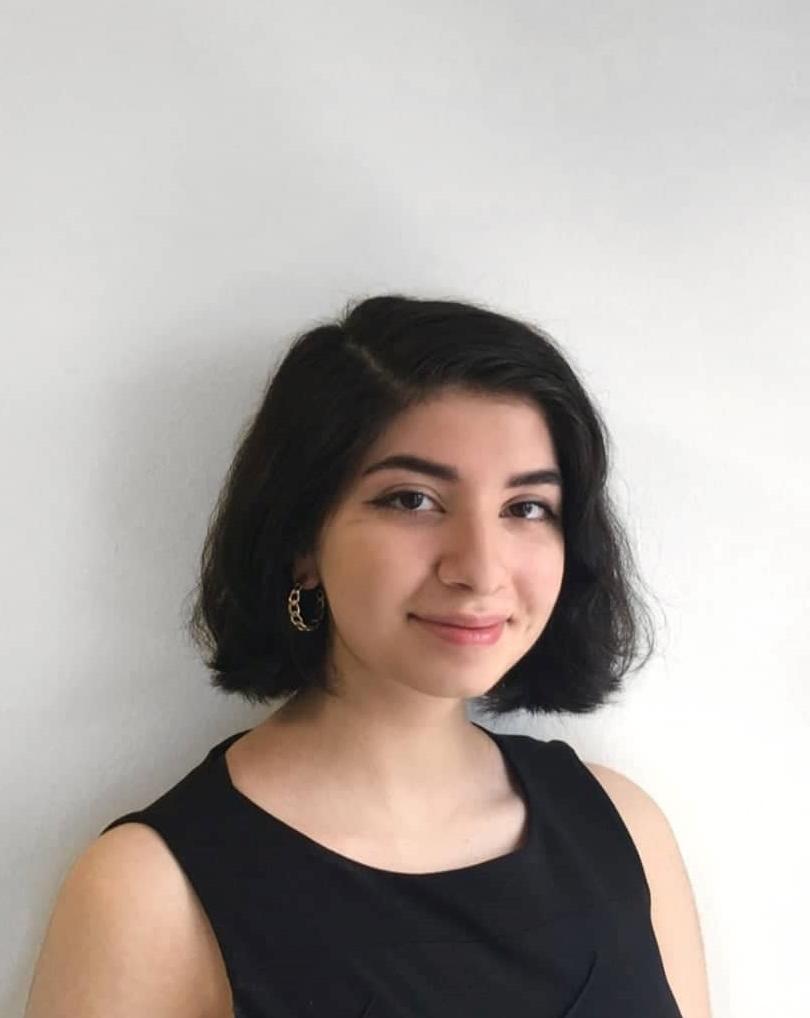
|
Kimya Firoozan ’25 is working in the lab of Professor Alex White to study parallel vs. serial processing in the brain’s word recognition system. There is currently an ongoing scientific debate regarding the limitations of serial and parallel processing capacities in brain regions responsible for reading. Previous studies have proposed that word recognition may be limited to one word at a time due to a "serial bottleneck" that requires focused attention. However, recent experimental findings from the Barnard Vision Lab challenge this conclusion by demonstrating that two unrelated words can be recognized in parallel if presented horizontally and within a narrow region of the central visual field. Her current study aims to further investigate conditions under which skilled readers can recognize two unrelated words simultaneously and independently. It will eliminate various experimental factors and delineate the boundaries of this region in the visual field by examining how far apart the words can be positioned while still allowing for parallel recognition. Moreover, the team will explore individual differences in reading capability and the corresponding neural activity in relevant brain areas using fMRI. Her study holds considerable promise for advancing the development of novel approaches to reading instruction and intervention to improve literacy. Her future plans include medical school, specializing in ophthalmology, and performing clinical research on degenerative eye diseases. |
|
Image
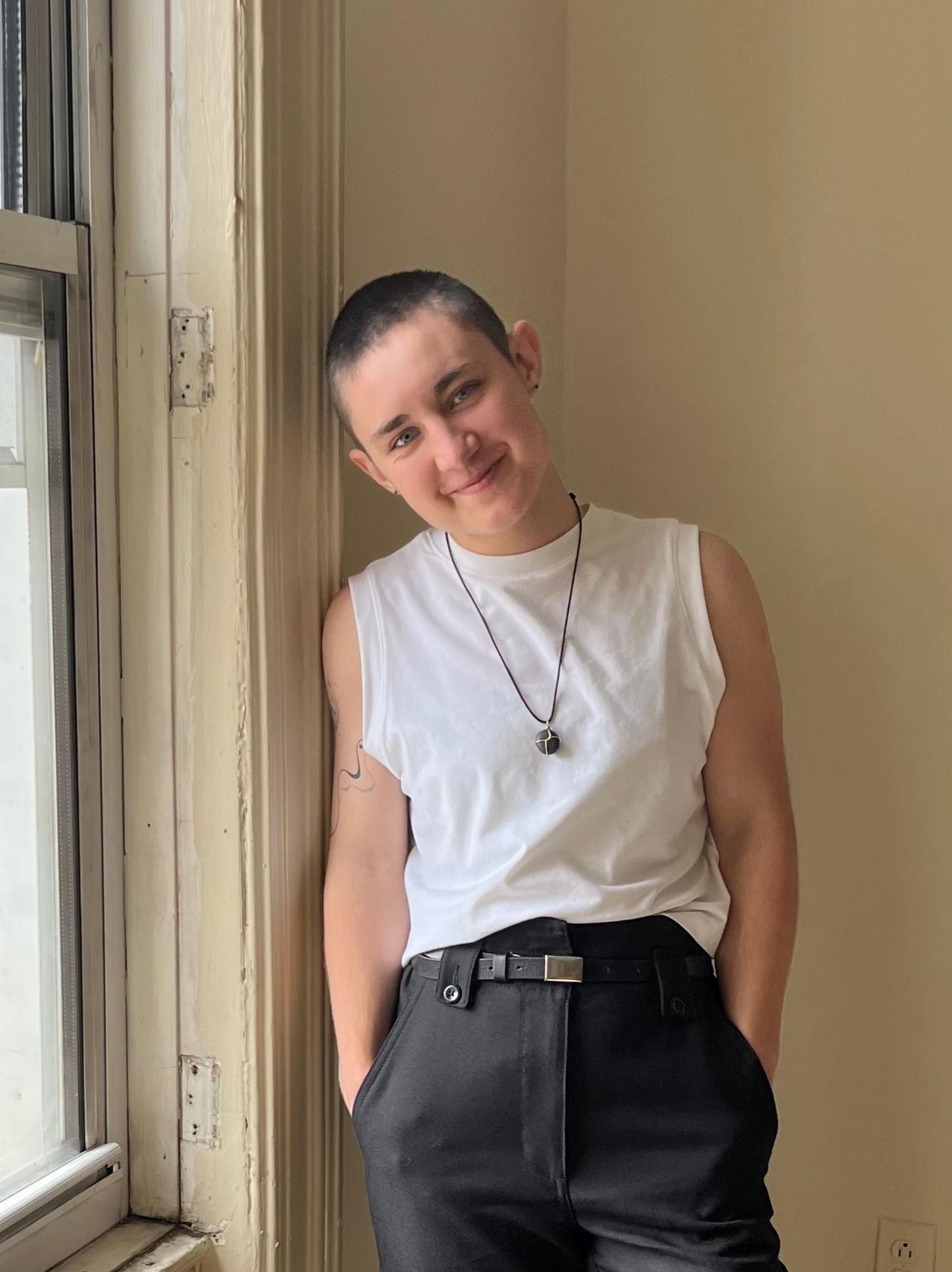
|
Eva Scholz-Carlson ’24 is a biochemistry major in the lab of Professor María de la Paz Fernández, where she studies circadian rhythms in fruit flies (Drosophila melanogaster). The Drosophila circadian clock resides in ~150 bilaterally distributed clock neurons that act as a time-keeping center analogous to the human suprachiasmatic nuclei. A subset of these neurons, the small ventral lateral neurons (s-LNvs) function as pacemakers, synchronizing the clock network by releasing the neuropeptide pigment-dispersing factor (PDF). Despite the importance of PDF as the synchronizing factor, little is known about the mechanisms by which it regulates the rest of the network. Eva uses a novel fly line that allows for CRISPR-Cas9 mediated knockout of PDF (donated by the Rosbash Laboratory, Brandeis University) to investigate developmental effects and sexual dimorphism in circadian rhythm perturbation through immunohistochemistry and behavioral assays. In addition, she is developing a method in collaboration with Dr. Fereshteh Zandkarimi at the Columbia Mass Spectrometry Core Facility to detect small peptides in fly hemolymph and investigate PDF as a long-distance signaling molecule. Finally, she is exploring the role of a cluster of previously uncharacterized neurons, SLP316, which have been identified as the main synaptic outputs of the s-LNvs but lack a molecular clock. Taken together, these experiments will improve our understanding of how the key pacemaker neurons in the clock network, the s-LNvs, communicate with the rest of the brain through synaptic and peptidergic signaling pathways. Eva hopes to continue pursuing her interest in neurobiochemistry through graduate school and a career in research. |
|
Image
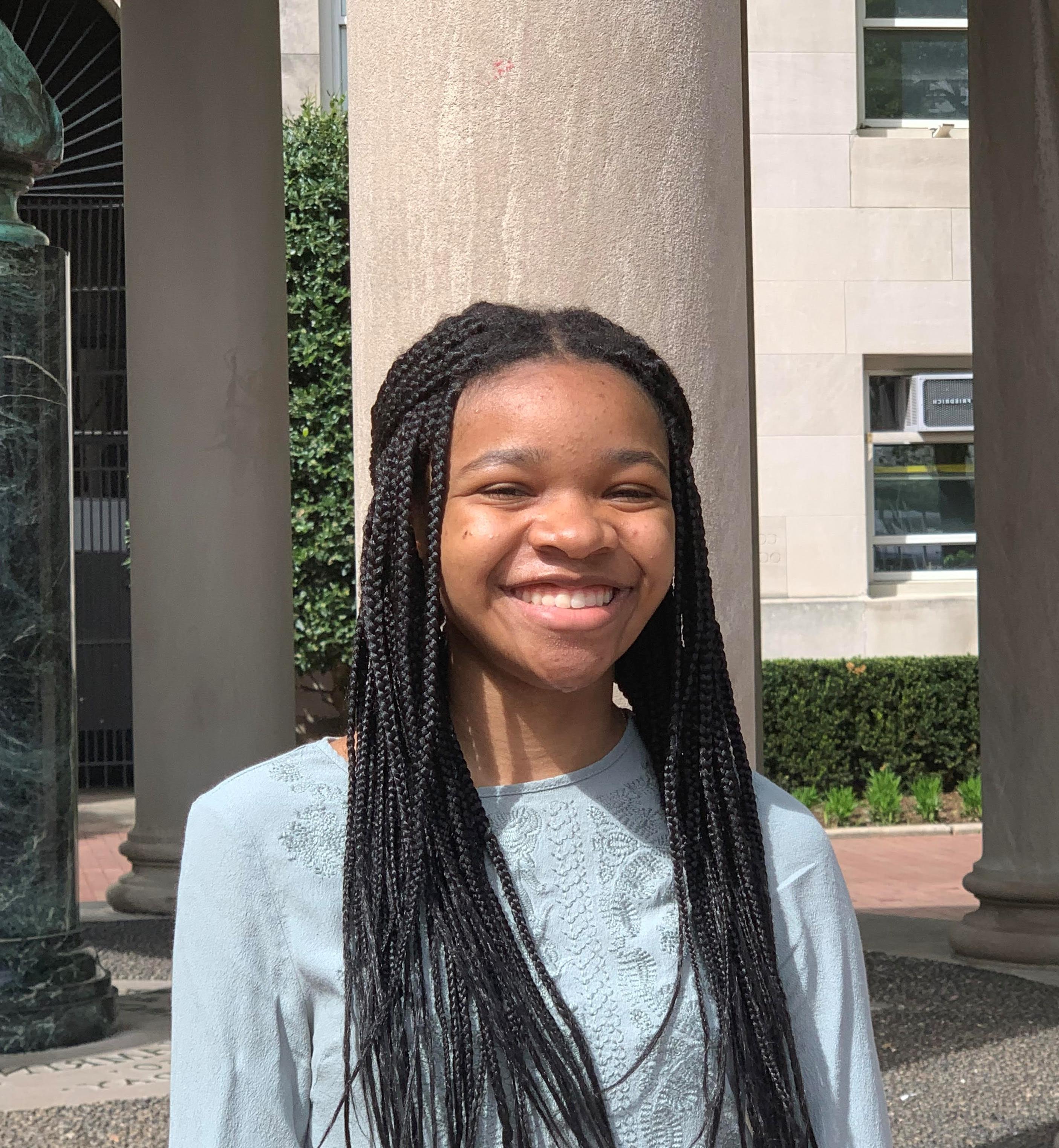
|
Tierani Green '24 is a biochemistry major in the lab of Professor Rachel Austin. As a part of the Austin lab’s studies of metalloenzymes, she studies the fatty acid decarboxylase UndB, an enzyme in the Class III family diiron enzymes that is related to alkane monooxygenase AlkB. Compared to other fatty acid decarboxylases such as OleT and UndA, UndB is noted for its higher catalytic efficiency. Currently, most fuels are derived from petroleum, a nonrenewable resource. However, naturally occurring decarboxylases like UndB introduce a promising future for biofuels through their production of terminal alkenes. Through efforts in purifying the integral membrane protein, Tierani hopes to learn more about the metalloenzyme’s structure, specifically in its diiron active site, and its decarboxylation mechanism. Her future goals include continuing her studies of biochemistry at a graduate level. |
|
Image
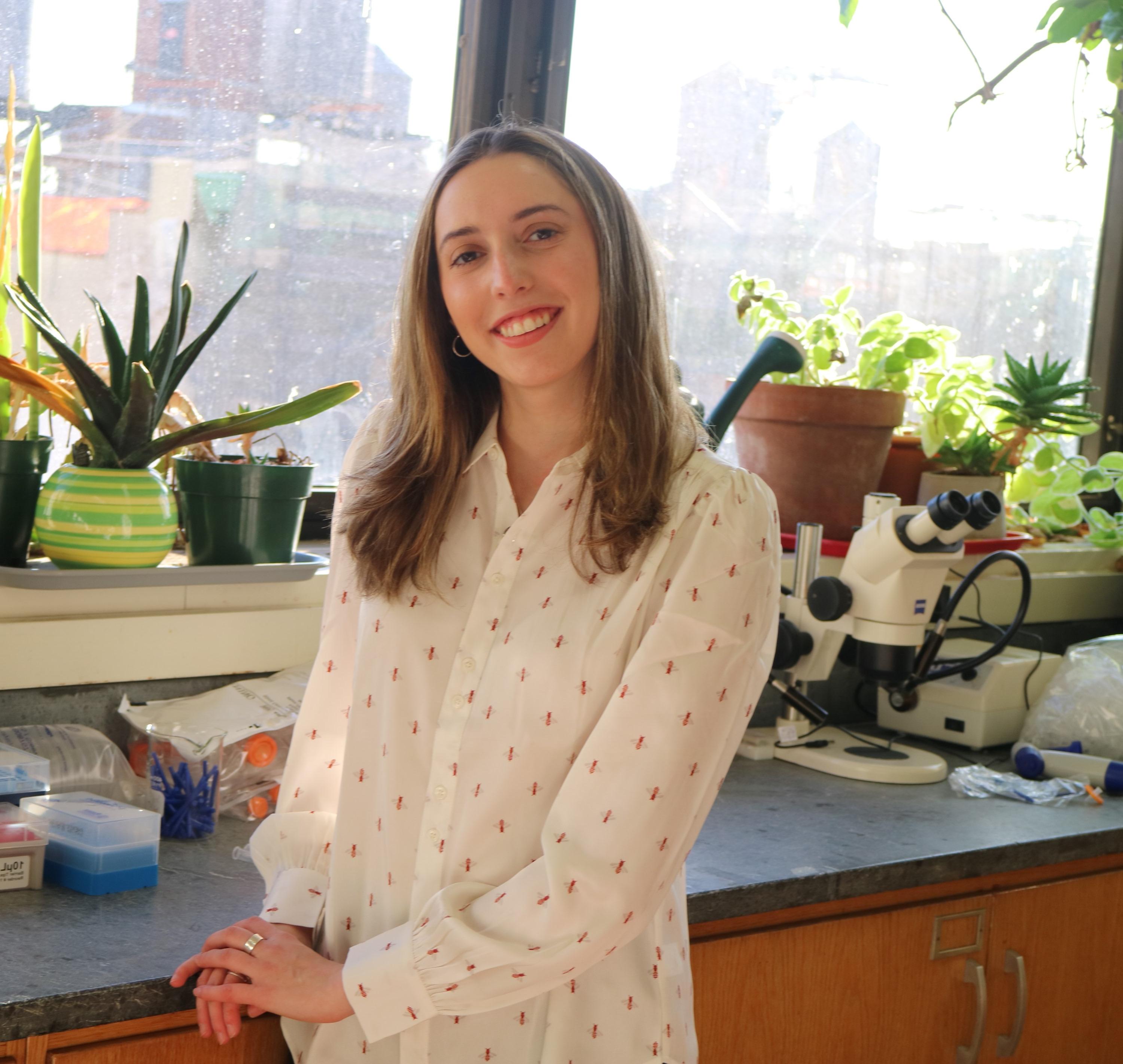
|
Eliana Elikan ‘23 is a Biology major in the lab of Professor Jonathan Snow. The Snow Lab studies the cellular stress response of honey bees and one specific stressor, the microsporidian Nosema ceranae. The N. ceranae parasite has been implicated in the rapid decline of honey bee populations. Traditionally, infection has been controlled with fumagillin; however, the drug has faced production problems and has been proven to impact host cell function. Therefore, Eliana focuses on developing a new approach to treating N. ceranae infection via RNA interference (RNAi). In her current research at the lab, Eliana has been designing and transfecting RNAi which in vitro transcribes double-stranded RNA in an attempt to knockdown genes of a related, better studied parasite Nosema Bombycis. Using N. bombycis as a surrogate to study N. ceranae genes will enable her to further understand the genetic makeup of the latter species, and generate a more effective knockdown as treatment for infection. Following Barnard; Eliana hopes to pursue an M.D. and perform clinical research on anxiety-related disorders. |
|
Image

|
Juliet Lee '21 In previous summers at Stanford University, Lee learned protein crystallization, a key first step in the use of X-ray crystallography to characterize enzyme structures. She was part of the Austin lab group examining metalloenzymes, specifically those referred to as AlkB, short for alkane monooxygenases and known to associate with iron ions. These enzymes are found across the tree of life, most pertinently in diverse marine microbes that biodegrade hydrocarbon compounds occurring naturally or spilling accidentally into deep ocean environments. Previous work has provided initial insights into the catalytic properties of AlkB, and greater strides will be possible if Lee can properly crystalize proteins for diffraction by X-rays. Lee is keen to integrate her background in mathematics with computational chemistry, and will pursue graduate study in chemistry. |
|
Image
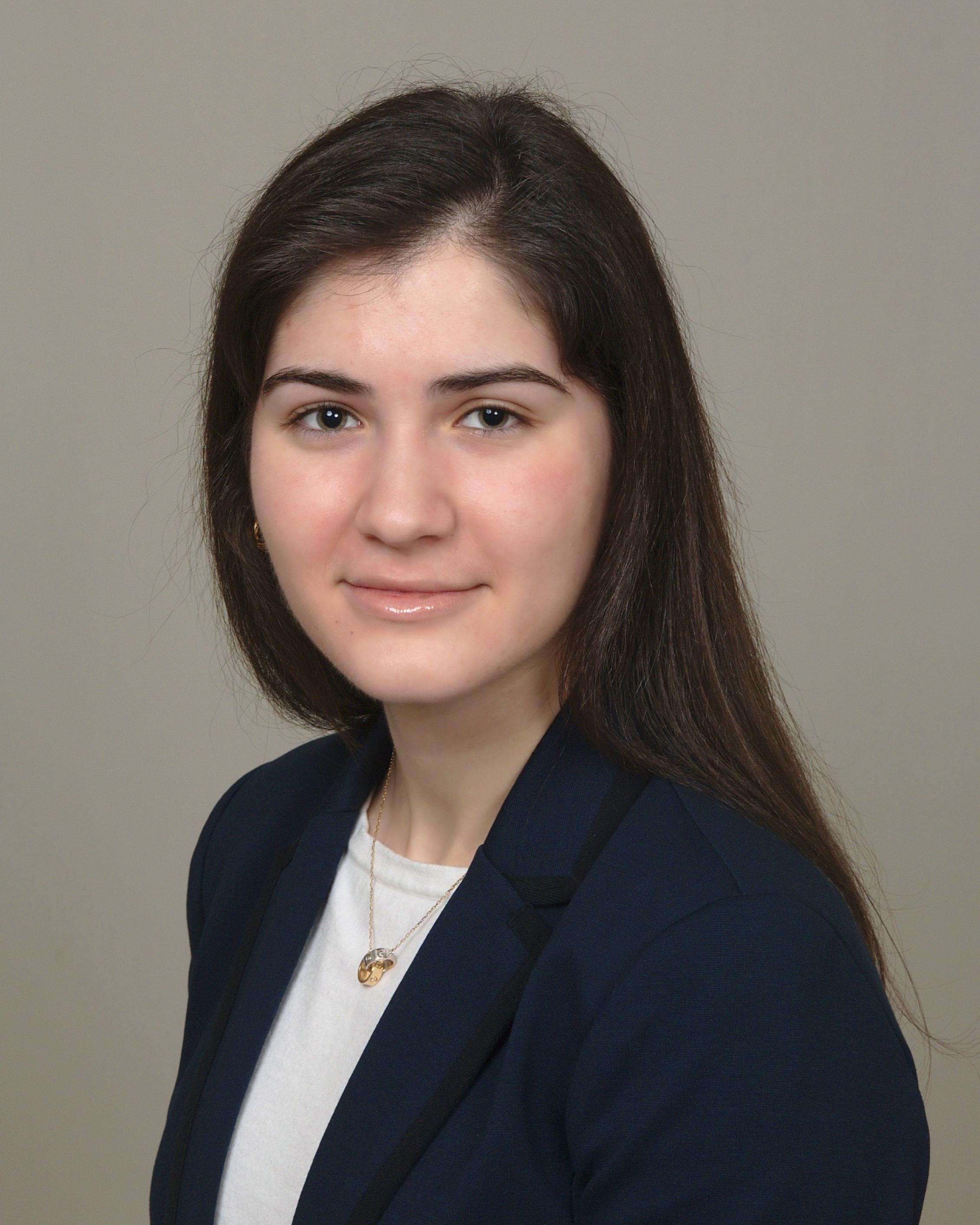
|
Alice Sardarian '21 studied Physiology & Organismal Biology while working in the lab of Professor John Glendinning. Using the mouse model, she investigated how taste and odor stimuli contribute to variation in consumption of ethanol, a generally aversive stimulus for its taste, odor, and irritant properties. Sardarian planned multiple experiments to tease apart the relative effectiveness and importance of these three stimuli. Her project took advantage of genetic tools (i.e., knock-out), a drug to block alcohol's burning sensation, and additives such as sweeteners and floral scents. Trained as an Emergency Medical Technician, Sardarian's future plans include medical school and a career as a surgeon, possibly specializing in trauma surgery. |
|
Image
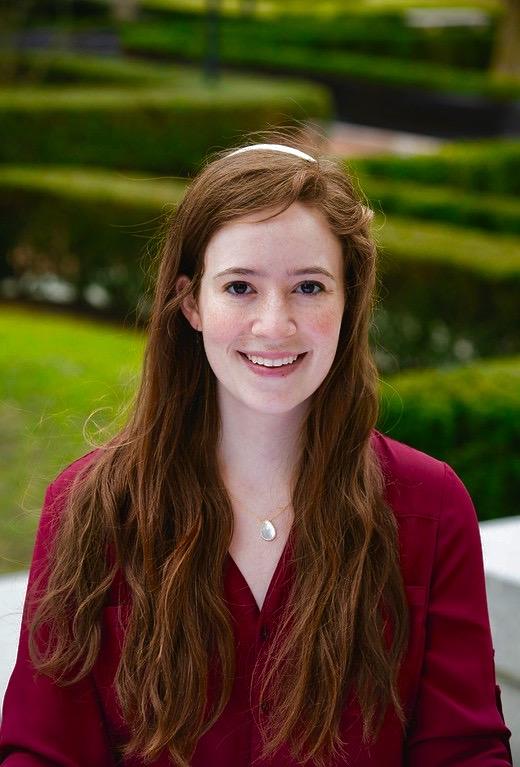
|
Shoshana Williams '20 was a chemistry major who worked in the lab of Professor Rachel Austin starting during her first year at Barnard. Her BSP award supported her continuing efforts to characterize properties of the enzyme AlkB, a di-iron protein that is sometimes associated with pathologies, and also found in diverse environmental microbes. Among other research activities, she conducted computationally intensive sub-projects during the Spring and Summer 2020 pandemic to follow up on her earlier work, which involved travel with her mentor to other campuses to access advanced spectroscopy techniques. In Summer 2018, Williams had declined a Beckman award to be an Amgen Scholar at Washington University. Upon graduating in Spring 2020, Williams won a Grace Potter Rice Fellowship and was honored by the Beckman Foundation with an invitation to be an undergraduate oral presenter at the Summer 2020 Beckman Symposium. She also won several Barnard and American Chemical Society prizes in chemistry and was inducted into Phi Beta Kappa. After her time as a Beckman Scholar and her many happy years as a member of the Austin lab, she will begin her PhD in chemical biology at Stanford University. She hopes to pursue a career in academic research. |
|
Image
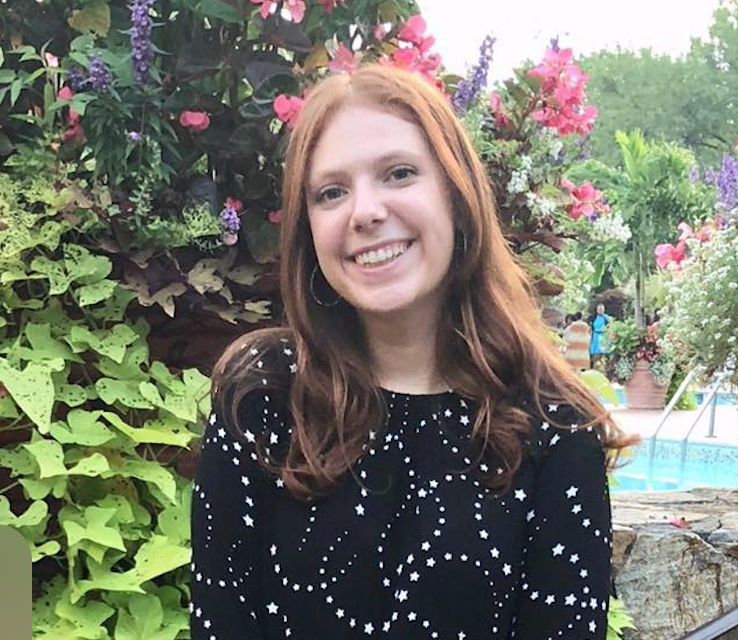
|
Rachel Nordlicht '20 was a Neuroscience and Behavior major in the lab of Professor Elizabeth Bauer. Her research focused on how neurons in the amygdala work together to produce anxious behaviors. The amygdala can be subdivided into different regions which contribute to both anxiety and emotional learning, and her project addresses the specific pathway between a region of the extended amygdala, the bed nucleus of the stria terminalis (BNST), and the central nucleus of the amygdala (CE). The key part of her project was to determine which behaviors activate cells within this pathway in both male and female animals. She also worked to determine the neurochemical characteristics of these neurons using a combination of tract tracing, immunohistochemistry and confocal microscopy. Together, these experiments advanced understanding of the neural substrates underlying fear, anxiety and stress. Nordlicht completed her senior thesis and other studies in May 2020 and graduated. She plans to work in biomedical research before pursuing her M.D. |
|
Image

|
Alyson Dennis '19 was a 2017 Beckman Scholar and a biology major who investigated the cephalic phase insulin response (CPIR). She worked in the lab of Professor John Glendinning, where previous students had established that glucose stimulates CPIR in mice, while artificial sweeteners and other taste stimulants do not. Dennis conducted conditioning experiments to test whether mice can "re-wire" the CPIR, learning to respond instead to artificial sweeteners, or even to salty or sour stimuli. She learned about computer-controlled feeding apparatuses, animal surgery, and statistics. Such skills will enhance her pursuit of a medical career, and her already strong interests in surgery and childhood wellness. After graduating in December 2019, Dennis gained experience in biomedical clinical practice while employed at Columbia Fertility. She began medical school in Fall 2020 at NYU Grossman School of Medicine. |
|
Image
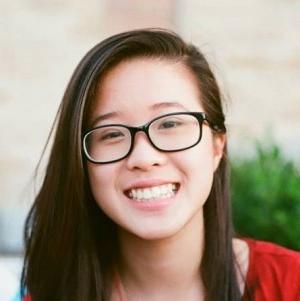
|
Jenny Lam '18 was a 2016 Beckman Scholar and chemistry major working with Professor Christian Rojas. She focused on synthesizing small sugar molecules to serve as "handles” for larger molecules, aiming to increase their medicinal effectiveness. During a previous summer in the Rojas lab, she had tested and optimized catalysts, purified products, and characterized them in molecular detail. As a Beckman Scholar, she continued these efforts and progressed to chemically attaching small molecules with their larger partners. After graduating, Jenny co-authored multiple professional articles while completing a research internship in drug discovery at Johns Hopkins University with fellowship support from the National Institutes of Health. She began pursuing a Ph.D. in chemistry at NYU in Fall 2020, aiming for possible careers in some aspect of medical chemistry, such as toxicology or drug development. |
|
Image
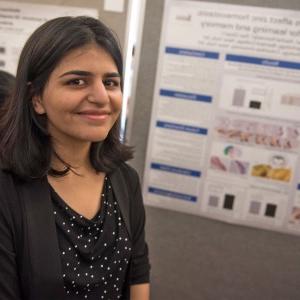
|
Amen Wiqas '18 was a 2015 Beckman Scholar who worked in Professor Rae Silver's lab on the role of mast cells, a type of immune cell in the brain, and the effect of zinc on the normal and pathological function of mammalian brains. She also received a Goldwater Scholarship to supper her undergraduate education and senior thesis research. Because there are many gender-biased disease pathologies related to the hippocampus, such as Alzheimer’s disease and multiple sclerosis (MS), she was also interested in seeing whether there are age- and gender-related zinc effects, since mast cells are known to be sensitive to hormones such as estrogen and testosterone. A biology major, she continued to conduct research in collaboration with the Silver lab and with the lab of Professor Rachel Austin in the Chemistry Department. Since graduating, Amen has continued to co-author papers with members of the Silver and Austin labs. She moved to the West Coast and works as a research assistant at the University of California-San Francisco. She anticipates pursuing an M.D. or M.D.-Ph.D. in the future. |
|
Image
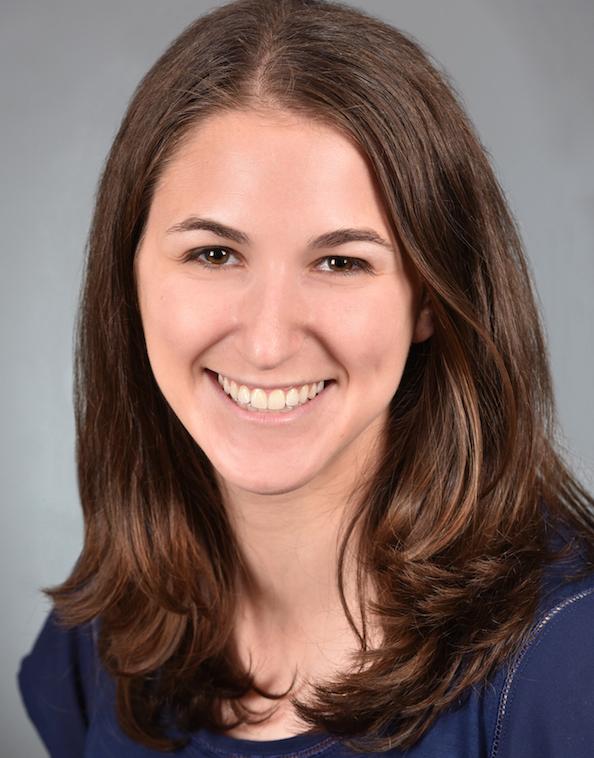
|
Yonina Frim '17 was a 2015 Beckman Scholar who worked in Professor John Glendinning's lab studying Type II Diabetes and the role of cephalic phase insulin release (CPIR)—insulin released as a result of taste stimulation during sugar intake. A biology major, her goals included earning her M.D. and a career as a practicing doctor who also conducts scientific research. Yonina was inspired while interning during the summer of 2014 at Boston Children's Hospital on a clinical research study for the Boston Center for Endometriosis. There, she saw how research and clinical medicine work together to ensure their mutual success. Frim graduated with highest honors in May 2017, winning induction into Phi Beta Kappa and several prizes. She published her work and also presented it at the Society for Chemoreception Science in Florida, winning an award for best undergraduate poster. The paper has already been downloaded more than 400 times and cited in at least 20 other articles. After graduating, she worked in the Division of Medical Critical Care at Boston Children's Hospital, working on quality improvement and hospital administration. She is now pursuing graduate studies and her M.D. at Harvard Medical School. |
Program Mentors
Individual Mentors’ Qualifications and Plans
Barnard Beckman Scholars will conduct their research with one of 10 participating faculty mentors. During the course of their research, they may also participate in an array of academic year and summer programs that support undergraduate researchers at Barnard, including opportunities to conduct research for academic credit in all STEM departments and the annual Summer Research Institute (SRI). In connection with all of these, Barnard provides appropriate training in general laboratory safety and compliance, as well as specialized training and certification at Columbia as necessary. Because scientists always benefit from multiple mentors, students interested in the Beckman Scholars Program can connect with additional Barnard faculty who serve on the Advisory Committee, available to provide a range of interdisciplinary perspectives including how projects can be enhanced by using computational and data-intensive methods, or by discussing connection of basic science research to urgent societal challenges, such as global public health, climate change, and efforts to dismantle racism and other discrimination embedded in the institutional structures of research.
Click on a lab below to learn more about what the mentorship process is like for a Scholar in the lab.
|
Image
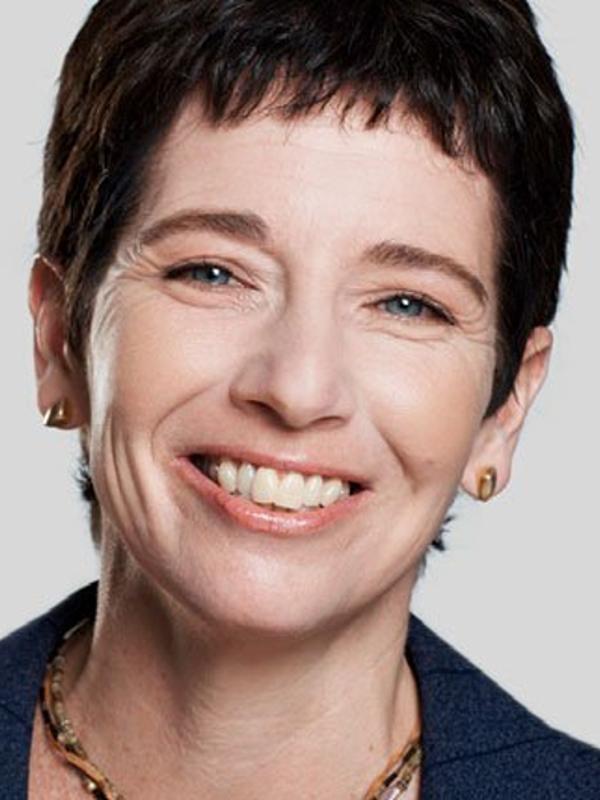
Austin Lab |
Image
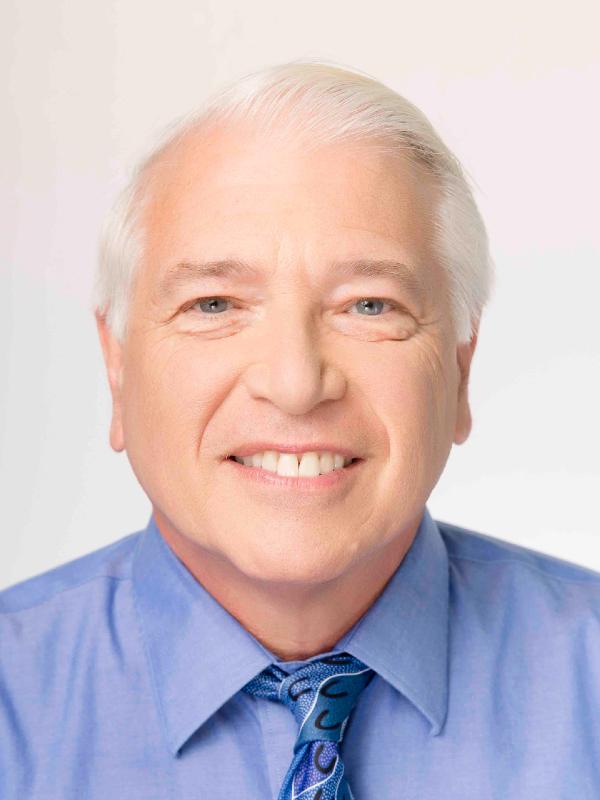
Balsam Lab |
Image
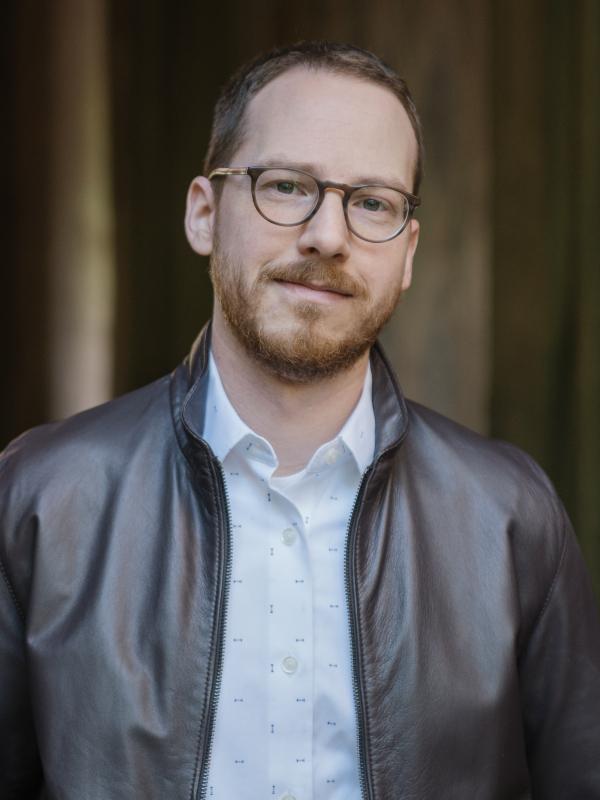
Campbell Lab |
Image
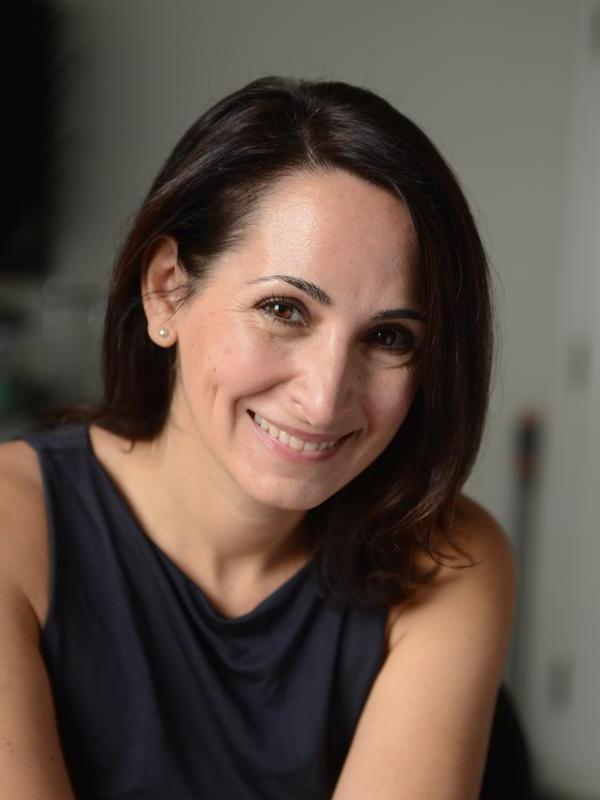
Fernández Lab |
Image
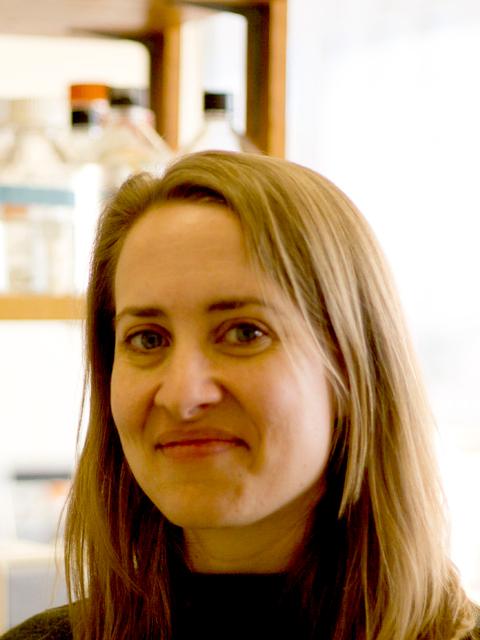
Mansfield Lab |
|
Image
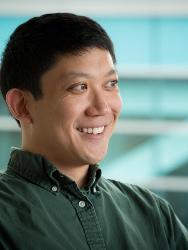
Miranda Lab |
Image
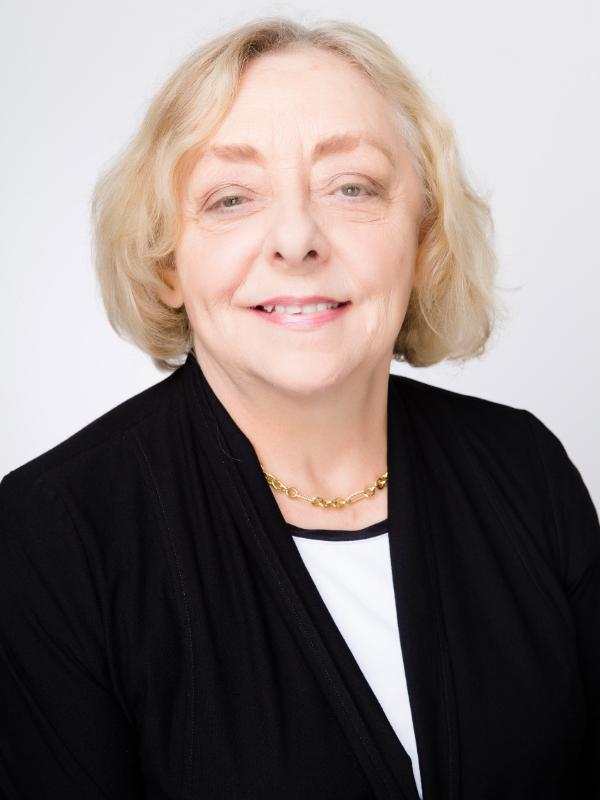
Silver Lab |
Image
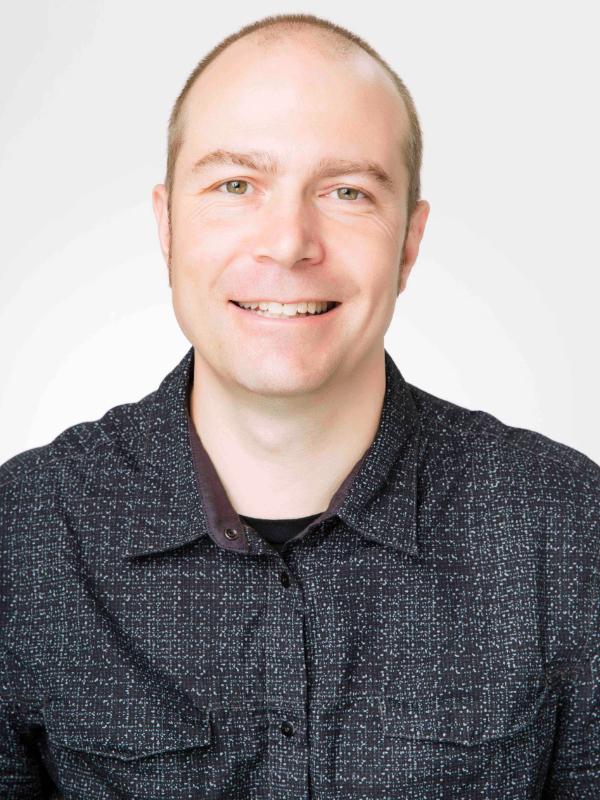
Snow Lab |
Image
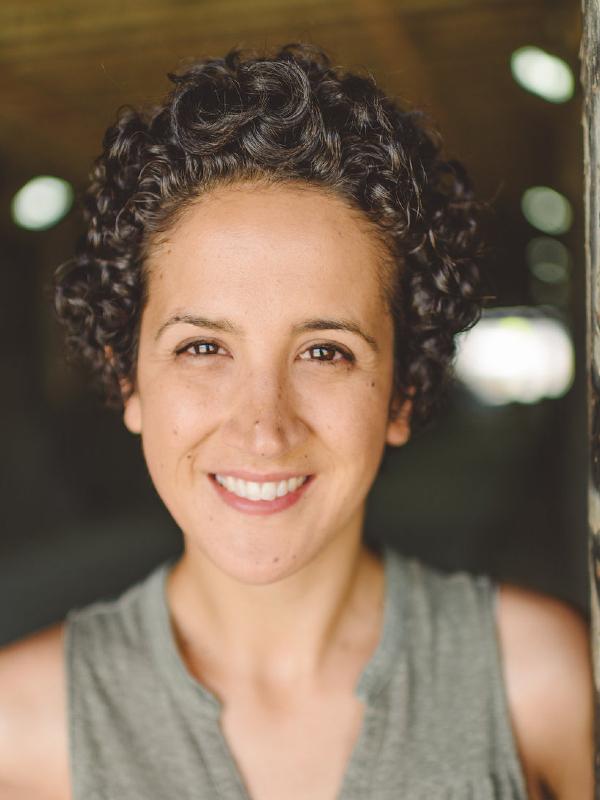
Vizcarra Lab |
Image

White Lab |
Rachel Austin | Chemistry
Undergraduate researchers in the Austin lab work on all aspects of experimental design and analysis including: background reading to understand the problem and to learn the history of the relevant experimental work; training on all aspects of the work including how to properly and safely use all equipment; designing experiments; carrying out experiments; analyzing data; presenting results from the work in public settings; and contributing to writing and revising the work for publication in a peer-reviewed journal. The scholar and the mentor will work together for 35 hours a week during the summer and 12 hours per week during the academic year. The mentor’s office adjoins her lab, making her available to work with the scholar whenever she is in the lab. Furthermore, the mentor still does lab work herself, providing a natural context to work side by side with the scholar, pointing out subtle technical details, talking about science, or talking casually about life outside of science. Austin has 25 years of experience advising students about careers in science (and careers away from the bench).
Chemistry and biochemistry majors are required to complete a senior capstone experience; most students chose to do a year-long honors thesis that culminates in a written thesis and oral defense of the thesis in front of a panel of experts. In addition, students can do research for academic credit before their senior year. The mentor will take the scholar with her to weekly seminars at Columbia and to at least one national or international meeting per year. The mentor will work with the scholar to develop skills necessary for a professional scientist, such as technical writing and training in ethics and safety. These will help the scholar in graduate school and in leadership roles. The vast majority of the students who have worked in her lab have gone onto graduate programs in the sciences. Austin has connections at many top programs and can offer advice about graduate programs in many areas of chemistry/biochemistry. She also routinely offers workshops to help students work on graduate application essays and will offer to provide feedback on graduate essays for the mentee.
Peter Balsam | Neuroscience and Behavior
Work in the Balsam lab aims to understand the brain mechanisms of temporal information processing. Any Beckman Scholar in the lab will lead all aspects of her project—from planning experiments to writing papers. She will collect data, analyze it, and consider alternative interpretations. She will build upon skills she learned in prior work, such as how to do behavioral testing of mice, brain histology, and imaging. The Beckman Scholar will work in the lab along with two or three other undergraduates. During this time, the Scholar will hone her skills at using the light-sheet microscope to image brains. Additionally, she will learn the software pipeline for image analysis and data presentation. She will also learn to program computers to control experimental procedures and to analyze data.
The Balsam lab is a very collaborative environment. Undergraduates meet regularly with the PI and others in the lab to discuss articles, review progress, and adjust research plans. There are several skilled surgeons and other experts in the lab, and the Scholar will be mentored by them to learn such techniques as how to clear the brains and image them, and how to analyze the images. In this way, undergraduates in the Balsam lab have many mentors and opportunities to learn relevant skills. The sustained research experience of a Beckman Scholar will let her discover whether her interests are on the more basic or more applied side of neuroscience. She will be introduced to both Ph.D. and M.D.-Ph.D. students and researchers so she can better understand what each of these career paths are like. To provide the Scholar with experience presenting her research in a professional setting, the results of the Scholar’s research can be presented at either the Pavlovian Society meeting or the meeting of the Eastern Psychological Association in addition to regular lab meetings and Barnard events, such as the Summer Research Institute’s poster session. At later stages of work, the project can be presented at the Society for Neuroscience meeting.
María de la Paz Fernández | Neuroscience and Behavior
Undergraduate researchers in the Fernández lab that join as Beckman Scholars will be involved in a project focused on understanding the neuronal basis of sex differences in sleep/wake cycles. Initially, they will learn basic notions of Drosophila melanogaster genetics and the fundamental concepts of circadian rhythms and sleep across species. The next step will be learning how to conduct and analyze behavioral experiments, and how to perform adult brain dissections. Finally, the student will learn microscopy techniques, as well as methods to quantify neuronal morphology and subcellular localization of clock proteins from their own experiments and microscopy images. Students in our lab are expected to be able to discuss the experimental design involved in all their experiments, including a detailed understanding of the proper controls and statistical analysis to use. We will also discuss research ethics, the use of animal model systems in neuroscience research with their advantages and disadvantages, and the process of scientific publications, from the basis for editorial decisions in different journals to the importance of peer review. As part of an ongoing collaboration with Prof. Aurel Lazar at the Columbia Department of Electrical Engineering, students in my lab are learning about connectomics and will soon start learning how to navigate the platforms for mapping of neural circuits. We encourage all students to take Computer Science courses. A Beckman scholar in our lab will therefore be involved in a project with an increasing level of complexity, from simple genetic and behavior experiments to state-of-the-art tools for neuronal circuit mapping.
Michael Campbell | Chemistry
A Beckman Scholar in the Campbell lab would work on an ongoing project that studies the chemistry of silver in its higher oxidation states. Silver-catalyzed oxidation reactions have shown great promise for chemical synthesis. One among multiple examples is nitrene transfer for carbon-nitrogen bond formation. For this and many other examples, the mechanisms of the reactions are poorly understood. This is a major hurdle towards rational catalyst design and optimization. Any project within this area of chemistry requires that student researchers master a range of synthetic and analytical techniques, and have a somewhat exploratory nature that requires a high level of curiosity and intellectual engagement on the part of the student, combined with active mentoring. These types of projects are ideally suited to Beckman Scholars, who would be expected to take intellectual ownership of individual projects, and work with a relatively higher degree of independence and commitment.
In her initial summer, a Beckman Scholar would be mentored in fully developing her research plan via weekly individual meetings, with additional day-to-day check-ins as needed. By the end of the summer, the Scholar will have developed a solid foundation for both the technical and conceptual aspects of her project, which will facilitate continued research during the academic year with less daily contact time. During the academic year, individual meetings will be held bi-weekly to discuss data analysis and interpretation. The lab holds weekly group meetings both during the summer and academic year, during which the Scholar will have the opportunity to present approximately twice per semester (combination of presentations on research progress, and papers from the primary literature). In addition to in-lab experiences that will provide preparation for graduate research, the Scholar will be expected to present her results at both internal and external venues. The Scholar will prepare a single-author poster for presentation at Barnard’s annual SRI poster session, and will also travel to present a poster at the following Spring American Chemical Society National Meeting. Participation in a national conference will build both presentation skills and allow for exposure to a wider range of chemistry that will be valuable for making informed decisions with respect to graduate school.
Jennifer Mansfield | Biology
The Mansfield lab studies mammalian embryonic development. A Beckman Scholar would play a central role in the lab’s research, which is conducted entirely by undergraduates, Mansfield herself, and a technician (usually a recent BC graduate). All students are expected to learn the basics of mouse genetics, quantitative gene expression analysis, tissue histology, morphological analysis, and microscopy on multiple platforms. Most projects are designed so pairs of students work in parallel using similar approaches, allowing both independent project ownership and extensive peer collaboration. The PI also aims for new students, depending on time commitment, to apprentice for 1–2 semesters with an experienced student before taking over her own project. Most students complete year-long projects focused on hands-on mastery of one or two techniques, plus contributions to experimental design and analysis, under close supervision. Frequent lab meetings allow collaborative data analysis, troubleshooting, and exposure of students to all our ongoing projects. A Beckman Scholar's experience would be similar to prior students who have stayed 3–4 years in the lab, acquiring a wider array of approaches applied to a series of projects, gaining independence, and serving as a role model to newer lab members. All students receive training that can be transferred to many areas of biomedical research. A past collaborative project in the Biological Sciences department engaged students in similar molecular genetics approaches, but in the context of characterizing chemosensory genomics in the insect Manduca sexta.
Weekly labs meeting during academic years and summers consist of weekly data updates and rotating data presentations and journal clubs. The mentor meets with students individually at least weekly, and works side-by-side with them in the summer. Most juniors and seniors are co-enrolled in a research seminar course and/or summer fellowship (SRI, Amgen Scholars, SURF, etc.). The mentor works closely with students in preparing talks and posters required for these courses and fellowships. Students are encouraged to enroll in programs that require them to write papers and give regular presentations in department, College, and University forums, and to prepare works for professional meetings. All students are expected to contribute data to publications, and many student co-authors provide feedback on manuscript drafts, preparing them for graduate study and research careers. The lab has a strong track record of sending students to top graduate and medical programs.
JJ Miranda | Biology
As an undergraduate researcher at a small liberal arts school, Dr. Miranda learned to take intellectual ownership of a project and defend his position in the field. Similarly, the Scholar will be given a project with a clear individual niche. For example, many proteins regulate transcriptional switches during reactivation of DNA viruses from latency. The Scholar will elucidate the role of one specific protein. Alternatively, several small molecule epigenetic regulators are being testing for efficacy in treating virus-associated cancer. The Scholar will elucidate the mechanism of action for one specific compound. In addition to the Barnard Summer Research Institute poster session and Beckman conference, the Scholar will present at a summer meeting frequently attended by the Miranda lab such as the International Herpesvirus Workshop or the International Symposium on Epstein-Barr virus and Associated Diseases.
Mentorship will occur at the bench, in individual meetings, and in group meetings. Dr. Miranda still actively performs experiments and has his own bench in the laboratory. He will therefore informally discuss data, experimental troubleshooting, and logistics with the Scholar on a daily basis. Once a week, the Scholar and Dr. Miranda will meet to generate a to-do list and timeline for the week’s science. These meetings will focus on project-specific details and questions. Also once a week, the entire research team will meet for a journal club or data presentation. These meetings will focus on field-wide broad-picture strategy and context.
Unlike many faculty at small liberal arts colleges, Dr. Miranda brings experience as a principal investigator in a medical school Ph.D. program. Based on successful experience mentoring graduate students, he will train a Scholar to leverage emerging technology to discover new genetic mechanisms. The Scholar will first be trained in a novel genomic method that incorporates high-throughput DNA sequencing and bioinformatic analysis, for example single-cell RNA-seq, ChIP-seq, or HiC. The computational skills attained will be particular useful to graduate school, a key step toward many possible career paths. Once technical expertise is established, the Scholar will be challenged to apply the method to answer a newly developed hypothesis within the virology project. This application of innovative methodology to an outstanding question will form the foundation for developing novel research at the graduate level.
Rae Silver | Neuroscience and Behavior
Undergraduate researchers in the Silver lab are intimately involved in the planning and execution of experiments and analysis of the results and are allotted significant independence and responsibility for their projects. Student researchers in the lab generally devote 10–15 hours a week to lab work in order to ensure that the experience is meaningful and that they are developing the skill sets that are crucial for scientific study and analysis. The schedule is adjusted to take coursework and exams into account, as those are always primary student responsibilities. A Beckman Scholar in the lab would have a number of options in research topics from which she can choose, including circadian rhythms, neuro-immune interactions, drug anticipatory behavior, and sex differences in gene expression within the brain. She would learn to perform computer programming using Mathematica or other modeling software, various staining techniques (immunocytochemistry and immunohistochemistry), and behavioral tests to explore questions about the brain and behavior.
Student researchers in the lab interact with the PI at least once a week during lab meeting, and also meet one-on-one on a regular basis to discuss experimental results and any problems in methods or analysis. These discussions are not one-sided, but collaborative. The student is asked her opinions and thoughts on the results or problems and encouraged to ask questions that would help her arrive at conclusions or solutions. This sort of interaction with students allows them to think independently, which is an important skill for anyone pursuing a career in scientific research. At the same time, the support the student receives allows her to better understand and develop a framework in which that research should be conducted.
The Silver lab is a teaching lab, with a substantial history of training undergraduate students for successful careers in graduate research. Many students have co-authored papers based on the work they did in the lab. This is a goal for students in the lab, as publications are an essential part of a strong resume for graduate programs. The Silver lab encourages its students to present at poster sessions and conferences so that they can develop the skills and confidence that are essential for presenting their research in front of an audience of scientific peers. In recent years, students have presented at the Beckman Symposium, Barnard Summer Research Institute poster sessions, departmental poster sessions, and the Society for Research in Biological Rhythms, Society for Behavioral Neuroendocrinology, and Society for Neuroscience conferences among others. All students are encouraged to complete a senior thesis as well.
Jonathan Snow | Biology
The Snow lab performs research on cellular stress responses and infectious disease in honey bees. The productivity of the lab has always been tied to the successful training of undergraduate researchers, who are incorporated into all aspects of research, with particular emphasis on designing and performing experiments as well as analyzing data. Throughout initial training, Snow works closely with students, assessing their interests and strengths. During this time, the Beckman Scholar will learn the basic biology of bees and beekeeping, as well as critical technical skills (e.g. honey bee infection assays, dissections, sample preparation, and gene expression analysis) and participate on a team-driven project. By the end of the first summer, a Beckman Scholar will be expected to draw upon technical expertise, internal motivation, and independent thinking to take ownership of one or more sub-projects.
Throughout her time in the lab, the Beckman Scholar will set short- and long-term goals as well as assess her engagement and performance using bi-weekly one-on-one meetings. However, science in the Snow lab is both an individual and a team endeavor. To that end, scheduling of some or all regular in-lab hours overlap, so that everyone can all learn from each other and create a cohesive ‘colony’. This community approach to learning is also supported by bi-weekly all-member lab meetings during which lab members present key background, methods, data, and conclusions from their projects. Students are continually encouraged to consider the ‘big picture’ context of their experiments and to think on their feet with respect to experimental design, data analysis, and conclusions. As a result, Snow has found that graduating students exhibit impressive understanding of their projects at both technical and theoretical levels. Equally important is their immersion in the theory, practice, and culture of science that occurs in the setting of a robust lab community that spans multiple ‘generations’ of Snow lab members.
Christina Vizcarra | Chemistry
Undergraduate scientists have a central role in Vizcarra's research program. With her support, they plan and execute experiments and make meaningful intellectual contributions to projects. Our overall research goal is to understand the mechanism and drug interactions of proteins that regulate the eukaryotic cytoskeleton. Driven by this scientific goal and specific student interests and goals, an undergraduate researcher may learn molecular cloning, exogenous protein expression and purification using E. coli and yeast, and/or various biophysical assays including high-resolution fluorescence microscopy. The scholar and PI would work together to create a well-delineated project suited to their scientific interests. This project will use existing expertise, instrumentation, and materials but have a scientific question of which the scholar can take ownership. This will allow them to present at the SRI and Beckman scholars conference during the initial year and to carry this project forward in subsequent years. Depending on the project that they select, the scholar may also present their research at a national meeting (American Society for Cell Biology, American Chemical Society, or Association for Research in Otolaryngology).
During the scholar’s first summer, she and Vizcarra would check in on a daily basis and also have more formal weekly meetings to set concrete research goals. At the lab bench, usually the PI or the full-time research technician in the lab work side-by-side, refining challenging laboratory techniques. Additionally, there are weekly group meeting in the summer and biweekly during the academic year. Small journal club meetings (with 2-3 students) have proven enormously valuable for getting students comfortable with the literature. This number of students is small enough that everyone participates but less pressure than a one-on-one meeting with the PI. Students see that everyone has questions about published data and hopefully articulate their own questions. Our research is highly interdisciplinary: we collaborate with Rachel Austin (inorganic chemist), Christian Rojas and Jean Vaddakan (organic chemists), and Lisa Olson (auditory mechanics, CUMC). Learning from and communicating with these scientists and their research teams is valuable training and provides an opportunity to consider different STEM career tracks. The central role of a research mentor is to support students so that they can find a rewarding and sustainable career path for them. This means fostering their scientific interests and helping them navigate the path to their goals, be they in academic science, medicine, education, or any number of non-research careers where their scientific training will undoubtedly serve them well.
Alex White | Neuroscience and Behavior
In the White lab the Beckman Scholar will collaborate with me on a project, and in an environment, that have been specifically tailored for UGRS. The research topic is how the human brain recognizes written words, which we investigate with the techniques of experimental psychology, eye-tracking, and neuroimaging. The Scholar will first help a more senior lab member collect data, while doing background reading, practicing coding (necessary to run the experiments and analyze data), and building relationships with the rest of the team (myself, a lab manager, a postdoc, and other students). Then they will work with me to design a new experiment for themselves, develop the stimuli, collect and analyze the data. One advantage of my field is that new ideas can be tested out quickly, and you can often directly experience the phenomena yourself.
All my studies begin with behavioral measurements, which have a lower barrier to entry, but the final goal is to link perception with brain activity. We use functional magnetic resonance imaging (fMRI) to record brain activity while subjects view specific stimuli and perform cognitive tasks. This is a rare and special opportunity for undergraduates. If the Scholar chooses to work on an MRI project, they will first learn how to safely work with an incredible piece of technology, and then assist collecting the data, which involves training the participant, situating them in the scanner, setting up stimuli, and running the scans. To help analyze the data, the Scholar will learn a great deal of brain anatomy, the underlying biophysics and valuable computational skills.
Barnard is a unique institution: a small college dedicated to its students nestled within a large research university. My lab takes full advantage of this position by providing UGRS with personalized mentorship, time and space to pursue their own experiments, and world-class scientific resources. I hope that with a little luck, all my undergraduate collaborators will be able to see a research project through, from the experimental design to crafting a paper or conference presentation. Along the way they will work as part of a team and as the leader on a project, learn technical skills like computer programming, data management and visualization, and nurture a life-long fascination with one of the most thrilling frontiers of human knowledge: cognitive neuroscience.
Barnard Beckman Advisory Board (2021 through 2024)
Barnard’s Beckman Advisory board will be convened as a complement to its team of Beckman Mentors in the departments of Biological Sciences, Chemistry, and Neuroscience. The purposes of the board include providing guidance to Beckman Scholars and mentors whenever their work requires an interdisciplinary lens, not only in related STEM fields—such as computer science, math, or psychology—but also in additional fields that might range from anthropology to women's gender and sexuality studies. We will encourage all future Beckman scholars to pair with an Advisory Board Committee member in addition to her Beckman mentor, and together they will function much like a thesis committee. Another general purpose of the advisory board committee will be connecting active scholar-mentor teams with BSP and other Barnard alumni active in STEM or allied fields, via Beyond Barnard and through Barnard's triennial regional Beckman Symposium forthcoming in 2022.
Until the committee is fully constituted, we encourage prospective Beckman applicants considering an application to contact not only prospective Beckman mentors, but any of the following faculty who have had extensive experience with Barnard's BSP and are likely to serve on the Advisory Committee.
Marisa Buzzeo, Barnard '01, Chemistry
Hilary Callahan, Biology, Founding Faculty Director of Barnard's BSP
Allison Lopatkin, Biology, specializing in computing in biology and synthetic biology
Russ Romeo, Psychology and Neuroscience
Rebecca Wright, Computer Science
If an applicant has a faculty member in mind as a secondary mentor but who is not listed above, the advisory committee is open to inviting their participation.